Another Day, Another Zuckerberg Announcement Riddled with Roman Empire Messages
Mark Zuckerberg’s latest Meta AI announcement once again reveals his deep fascination with the Roman Empire, weaving ancient imagery into modern tech ambitions.
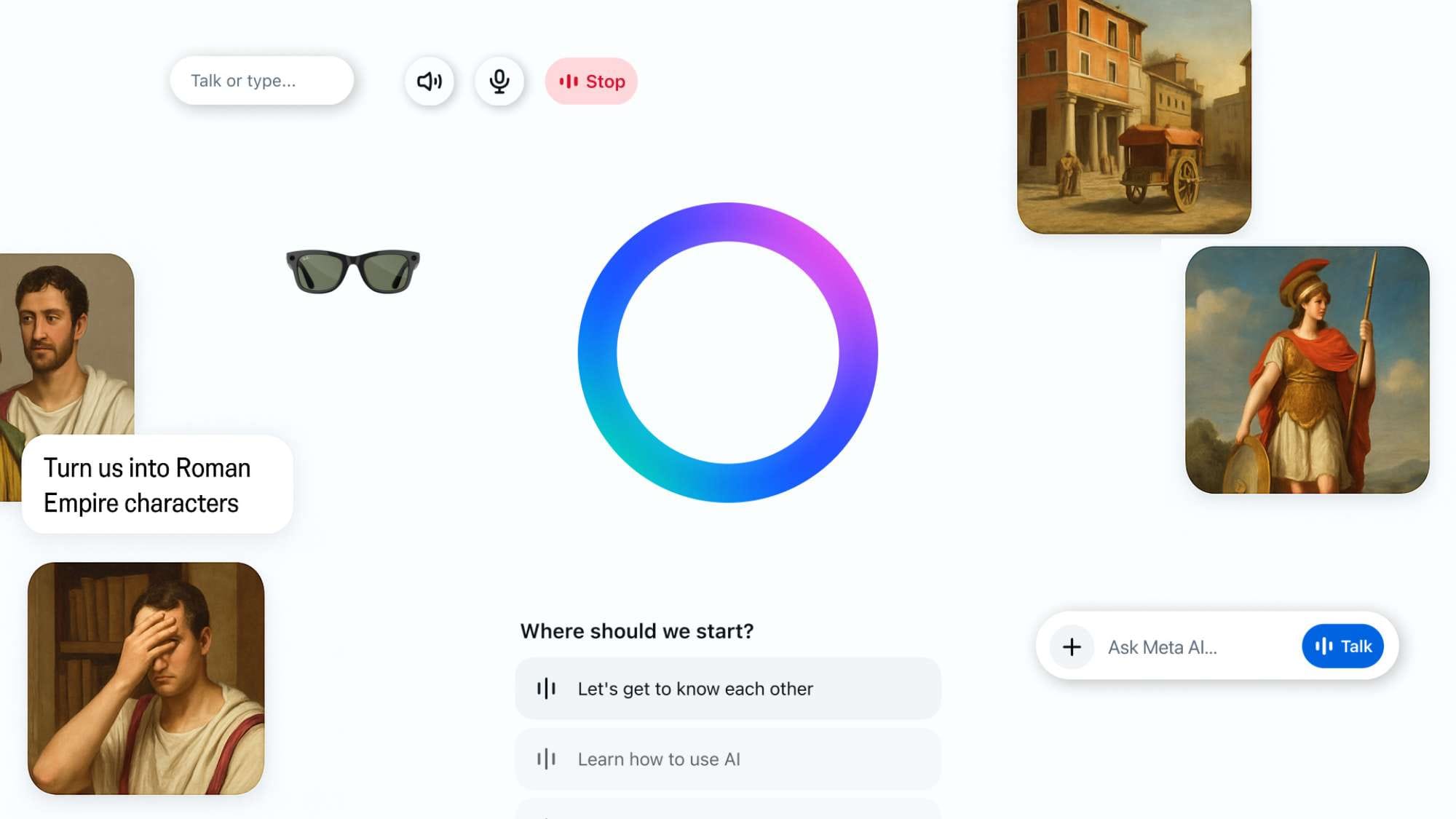
Mark Zuckerberg’s ongoing fascination with the Roman Empire continues to surface in his public appearances — and nowhere is this clearer than in Meta’s latest AI announcement. In a new promotional video for the Meta AI app (shared via Zuckerberg’s Facebook Reel), Zuckerberg showcases the new AI capabilities, subtly weaving Roman imagery and references once again into the conversation.
In the video, Zuckerberg demonstrates the AI’s versatility by prompting it with two distinctly Roman-inspired queries. The first involves a request for Meta AI to “drop some Roman history questions so Max can ace her history be[…],” a touching nod to his daughter Max and her education.
The second is a more imaginative exercise, asking the AI to “imagine a Roman bust made entirely out of diamonds, and place it in a museum.” After so many iterations of the same thought pattern, these can’t just be random ideas — they are part of a growing pattern that confirms Zuckerberg’s almost personal obsession with the grandeur, permanence, and legacy of Rome.
A Consistent Pattern: Zuckerberg’s Roman Obsession
This is far from an isolated incident. Zuckerberg’s recent public appearances and announcements have been peppered with Roman allusions, creating a clear thematic line. In our previous analyses — Mark Zuckerberg’s Secret Hidden Roman Message in His T-Shirt, The Roman Meaning Behind Zuckerberg’s Sculpture for His Wife Priscilla, and Is Zuckerberg Just a Roman Empire Nerd, or Augustus’ Descendant? — we have documented his increasing reliance on Roman symbology as a framework for presenting himself, his ambitions, and now, his company’s AI future.
Previously, Zuckerberg wore a T-shirt with the Latin phrase ‘Annos undeviginti natus exercitum privato consilio et privata impensa comparavi,’ directly quoting Augustus’ Res Gestae Divi Augusti. In another instance, he revealed he had commissioned a sculpture of his wife Priscilla in a deliberate revival of Roman customs honoring family legacy. Each of these gestures points not just to a passing interest but to a carefully curated self-image, deeply intertwined with Roman ideals of power, permanence, and personal mythology.
Why Rome?
The Roman Empire represents not only conquest and technological prowess but also the careful cultivation of an eternal legacy — a theme Zuckerberg seems increasingly intent on echoing. In the case of Meta’s new AI app, invoking Rome isn’t incidental.
It’s a continuation of presenting Meta’s offerings as tools that aim for a similarly enduring impact. Rome’s influence lasted centuries, shaping the Western world’s language, law, and infrastructure. Similarly, Zuckerberg appears to envision Meta’s AI as a foundational cornerstone of the digital future.
Zuckerberg’s choice to frame even a casual demonstration of AI capabilities with Roman references subtly positions his technology within a grand narrative of human achievement. Teaching his daughter Roman history, imagining opulent Roman busts in modern museums, referencing Augustus in fashion — these aren’t random flourishes; they are deliberate markers of a broader, almost mythological ambition.
The Diamond Bust: More Than Just Fantasy
The demo prompt showcased in the video reel, to imagine “a Roman bust made entirely out of diamonds” may seem whimsical, but one can argue it too ties into Zuckerberg’s fascination with permanence and immortality. Diamonds, often symbols of enduring value and strength, fused with the image of a Roman bust — a monument to power and dignity — create a vision of unshakable legacy.
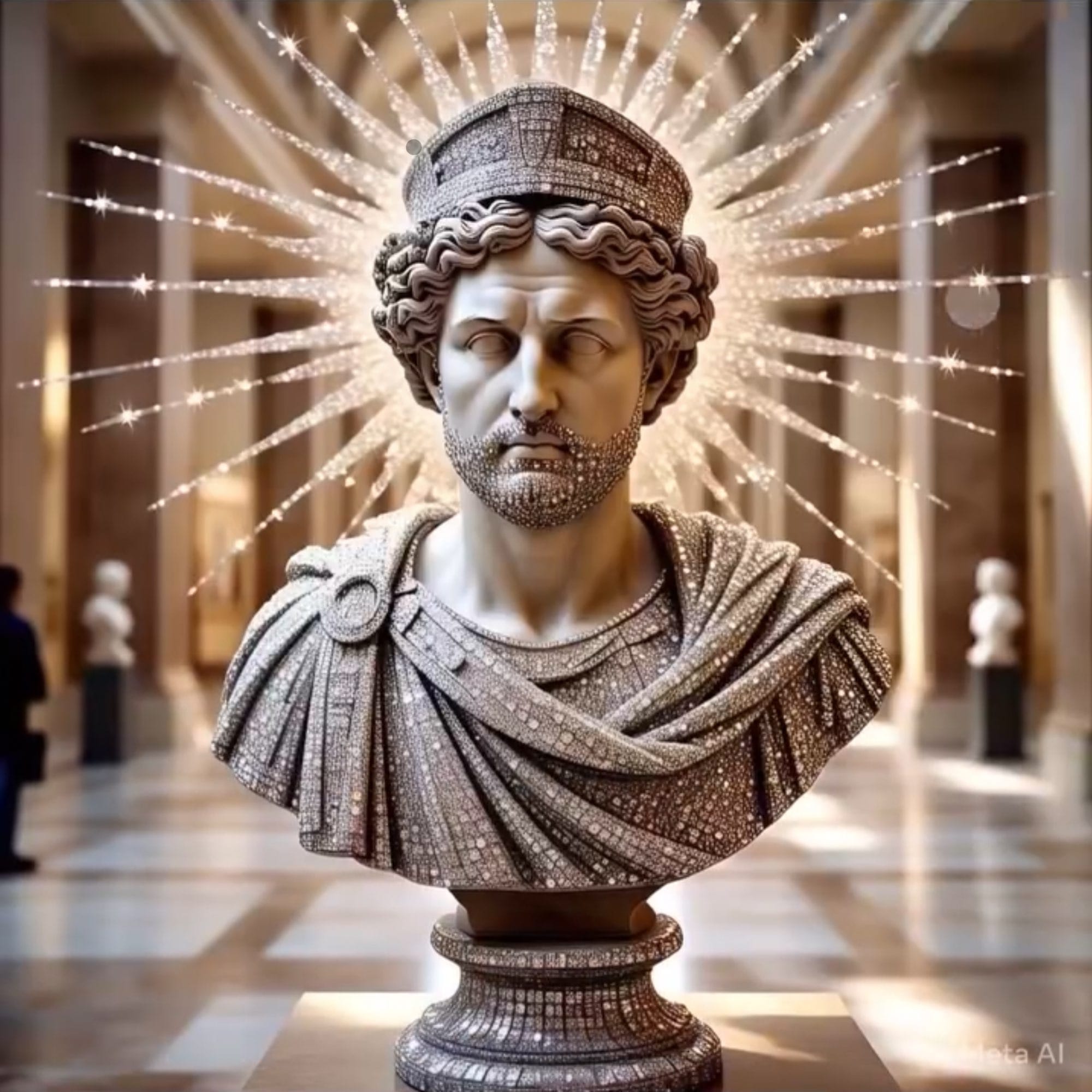
In the context of AI, it suggests Zuckerberg sees the creative and cultural potential of his new platforms as something monumental, timeless, and glitteringly indestructible.
Meta AI’s interpretation of a Roman bust made out of diamonds, inside a museum
At a deeper level, this could be seen as Zuckerberg’s personal artistic vision for Meta’s role in society: just as Roman emperors commissioned marble busts to be remembered through the ages, Zuckerberg envisions digital monuments — in AI, in augmented and virtual reality — that will outlive even the fleeting eras of technology.
A Fascination That Doesn’t Seem to Fade
Outside of his business ventures, Zuckerberg’s social media behavior has increasingly reflected this Roman fixation. In one of his birthday celebrations earlier this year, he famously wore a t-shirt referencing Carthage and Rome’s eventual dominance, symbolizing Meta’s intended victory over competitors like Apple. At the same event, he used Latin phrases like Aut Zuck Aut Nihil (“Either Zuck or nothing”) in an oversized hoodie, merging humor with imperial aspiration.
This repeated signaling reflects more than branding; it suggests that Zuckerberg has internalized Rome’s narratives of empire building, family honor, technological achievement, and personal immortality — and is actively weaving them into his corporate and personal mythologies.
Not Just Nostalgia: A Strategy
When viewed as a cohesive strategy, Zuckerberg’s references to the Roman Empire seem less eccentric and more like a carefully curated public persona. Rome was a civilization built on innovation, law, power, and cultural prestige. By aligning himself and his company with these ideals, Zuckerberg taps into powerful, enduring archetypes that can resonate far beyond tech circles.
This Roman fascination also allows Zuckerberg to differentiate himself in an increasingly crowded AI space. While competitors like Apple, Google, and OpenAI frame their advancements around utility and safety, Zuckerberg is subtly framing Meta’s AI evolution within a story of greatness, cultural significance, and historical continuity.

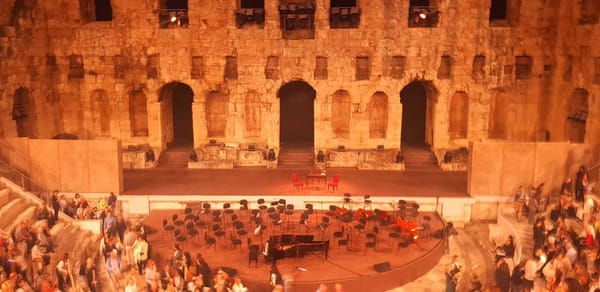
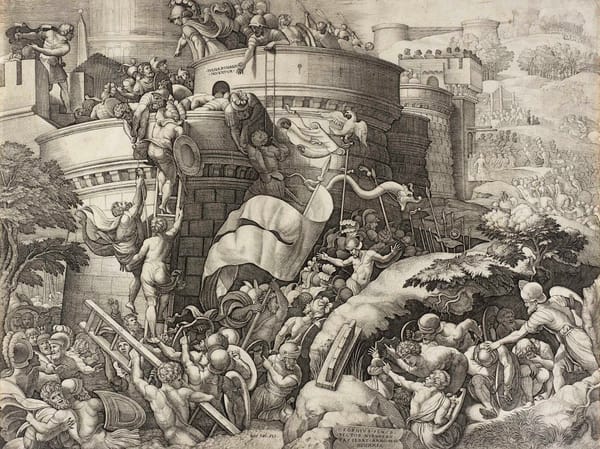

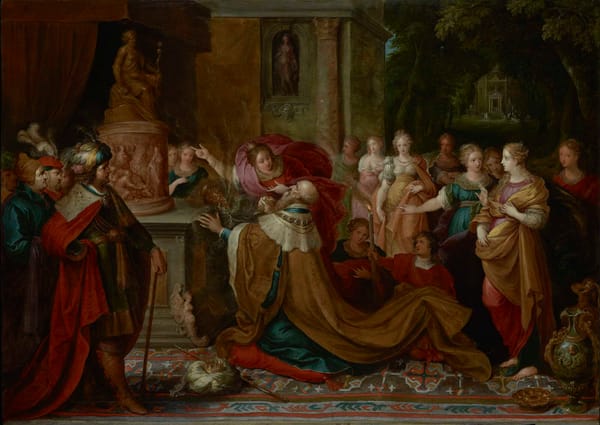
About the Roman Empire Times
See all the latest news for the Roman Empire, ancient Roman historical facts, anecdotes from Roman Times and stories from the Empire at romanempiretimes.com. Contact our newsroom to report an update or send your story, photos and videos. Follow RET on Google News, Flipboard and subscribe here to our daily email.
Follow the Roman Empire Times on social media: